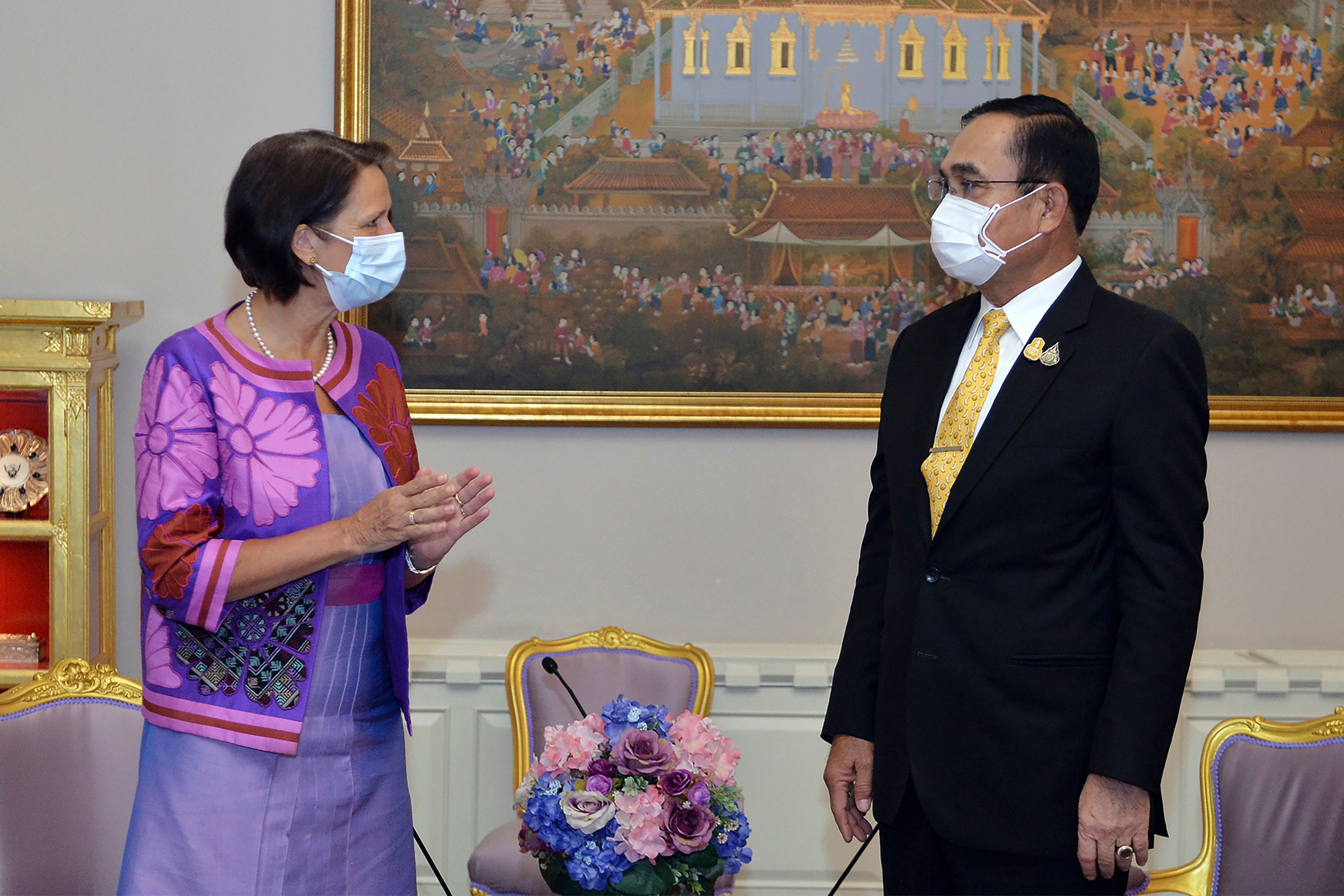UN envoy asks Thai leader's aid in ending crisis in Myanmar
The United Nations’ special envoy on Myanmar has met with Thailand’s prime minister as she continues efforts to end violence in Myanmar sparked by a military takeover in February

Your support helps us to tell the story
From reproductive rights to climate change to Big Tech, The Independent is on the ground when the story is developing. Whether it's investigating the financials of Elon Musk's pro-Trump PAC or producing our latest documentary, 'The A Word', which shines a light on the American women fighting for reproductive rights, we know how important it is to parse out the facts from the messaging.
At such a critical moment in US history, we need reporters on the ground. Your donation allows us to keep sending journalists to speak to both sides of the story.
The Independent is trusted by Americans across the entire political spectrum. And unlike many other quality news outlets, we choose not to lock Americans out of our reporting and analysis with paywalls. We believe quality journalism should be available to everyone, paid for by those who can afford it.
Your support makes all the difference.The United Nations' special envoy on Myanmar met with Thailan ’s prime minister on Friday as she continues efforts to end violence in Myanmar sparked by a military takeover in February.
The envoy, Christine Schraner Burgener, told Prayuth Chan-ocha in Bangkok that she hopes Thailand will find ways to work with Myanmar’s military to ease the unrest, the prime minister’s office said in a statement.
The army’s seizure of power has been opposed by a broad cross-section of Myanmar's population, and the junta has responded with a violent crackdown that has cost hundreds of lives. The escalation of violence and the junta’s failure to restore order has led to fears the country could become a failed state, impacting neighboring Thailand and the whole region.
Prayuth told Schraner Burgener his government is ready to listen and exchange information that could be beneficial, according to the statement, which said the two also discussed humanitarian assistance for affected people, including those fleeing across the border into Thailand for safety.
Prayuth, a former army commander who also came to power by ousting an elected civilian government, is perceived to have a close relationship with the head of Myanmar’s military government, Senior Gen. Min Aung Hlaing.
The U.N. envoy has been based in Thailand since April. She attended a special meeting of the leaders of the 10-member Association of Southeast Asian Nations in Jakarta on April 24 and met with Min Aung Hlaing.
Schraner Burgener has said she plans to stay in the region in the coming weeks and remain in close contact with ASEAN to support “the timely and comprehensive implementation” of its “five-point consensus” on the Myanmar crisis.
It calls for the immediate cessation of violence, a dialogue among all concerned parties, mediation of the dialogue by an ASEAN special envoy, provision of humanitarian aid through ASEAN channels and a visit to Myanmar by the special envoy to meet all concerned parties.
Min Aung Hlaing’s government has since indicated it will only consider the ASEAN agreement after reestablishing stability.
While the junta’s use of lethal force against mass protests has reduced turnouts at peaceful rallies in Myanmar’s cities and towns, the level of civil unrest remains high. Some groups of protesters have embraced armed self-defense, often only with air guns, single-shot hunting rifles and homemade grenades and firebombs.
On Thursday, the junta announced the imposition of martial law in Mindat township in the western state of Chin, which borders India The remote area has been one of the most militant in putting up armed resistance to the security forces, who have suffered casualties in almost daily confrontations.
A shadow National Unity Government established by opponents of the army's rule announced last week that it is creating a “People’s Defense Force" to consolidate resistance to the military takeover.
In addition to the protests for a restoration of democracy, there has also been an upsurge in fighting in border areas between the military and ethnic guerrilla armies that have declared their support for the pro-democracy movement. The fighting, including government air strikes, has forced tens of thousands of villagers to flee their homes in Karen state, close to the Thai border, and also seen clashes in Kachin state in the north.
——
Associated Press journalist Jerry Harmer contributed to this report.